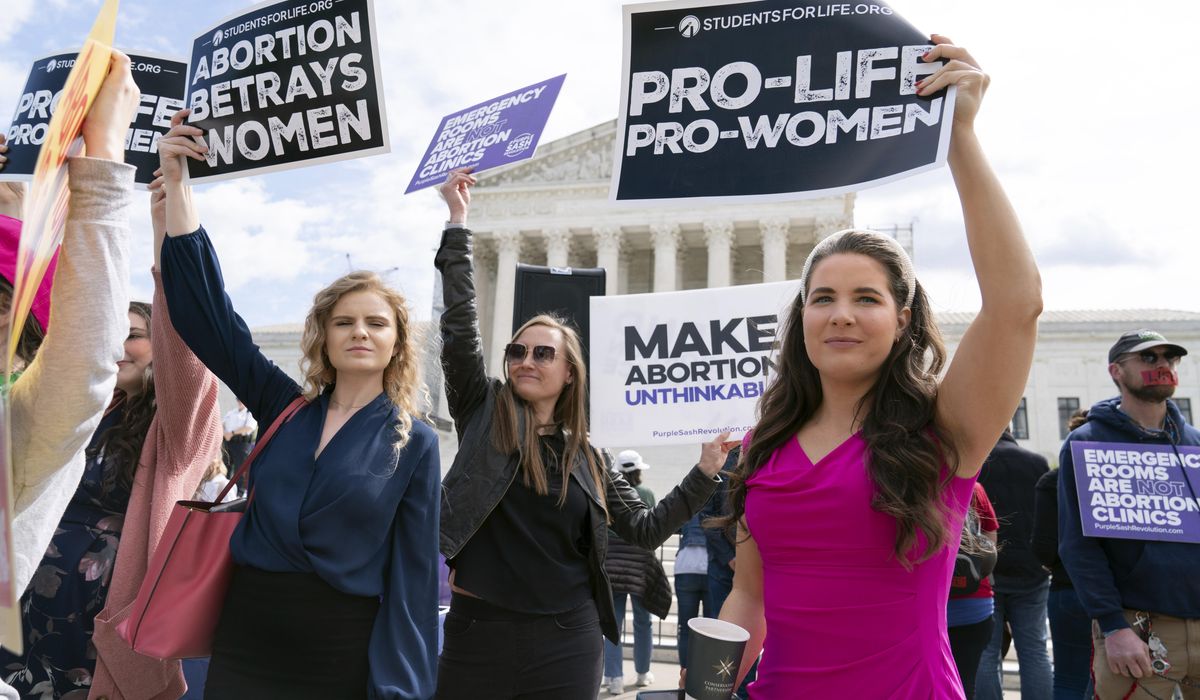


The Supreme Court appeared divided ideologically on Wednesday over whether federal law mandates abortions to be performed in hospital emergency rooms in states that have banned the procedure.
The dispute presented the justices with a legal battle over how to square state laws that have prohibited abortion — except in instances to save the mother’s life and other rare circumstances — since the high court’s decision in 2022 that ended Roe v. Wade’s nationwide abortion rights and sent the issue back to the states.
The federal government, through President Biden’s Justice Department, says those strict abortion laws in states like Idaho run afoul of the Federal Emergency Medical Treatment and Labor Act (EMTALA), which requires women to have stabilizing care in emergency rooms, including abortions if their health is at stake.
“Doctors in Idaho and women in Idaho are facing an impossible position,” said Solicitor General Elizabeth Prelogar.
She said women have to be airlifted out of state once every other week to receive a needed abortion and that EMTALA was aimed at preventing “patient dumping.”
In the wake of the Supreme Court’s ruling in Dobbs, Idaho enacted the Defense of Life Act, which penalizes doctors for performing an abortion unless it is done to prevent the woman from dying. Since the Dobbs decision, more than a dozen states have outlawed abortion.
SEE ALSO: Justice Sotomayor bungles state abortion laws during Supreme Court argument
Six states, according to the federal government, do not include a “health exemption” for women.
The Department of Justice sued Idaho over the law, citing EMTALA. The DOJ argued that the federal law supersedes the state’s law because EMTALA requires hospitals that receive Medicare funds to provide stabilizing care to patients in emergency rooms, including abortions, to ensure a woman won’t have complications or impairments.
The feds argue that includes preventing the women from suffering organ damage or loss of fertility — not just intervening to stop immediate death.
The 9th U.S. Circuit Court of Appeals ruled in favor of the Justice Department, upholding a lower court injunction that halted the state from enforcing its law.
The Supreme Court put the injunction on hold, and the justices agreed to hear Idaho’s appeal on Wednesday, with a ruling expected by the end of June
Joshua Turner, who represented the state and its lawmakers, disputed the claim that Idaho was not caring for women in medical crisis, but he noted his state, like others, considered a “two-patient scenario,” weighing the health of an unborn child.
“It is very case by case,” he said. “Idaho is treating these women.”
“I know of no state that doesn’t have a life-saving exception,” he added.
Justice Samuel A. Alito Jr., a Bush appointee, quizzed the federal government on how it squares EMTALA with providing for abortions when the law was amended to include care for an “unborn child.”
“Have you seen abortion statutes that use the phrase unborn child? Doesn’t that tell us something,” he said.
But the liberal wing of the court argued the states can’t subvert federal law.
“You are sort of putting preemption on its head,” Justice Sonia Sotomayor, an Obama appointee.
“Abortion is the accepted medical standard of care,” said Justice Elena Kagan, an Obama appointee. “There is basic requirements to stabilize a patient.”
• Alex Swoyer can be reached at aswoyer@washingtontimes.com.
